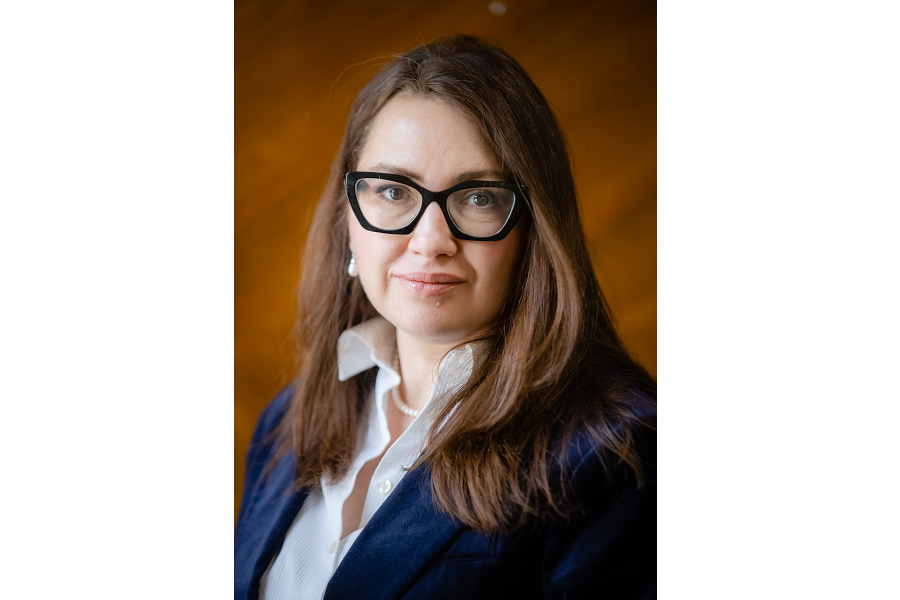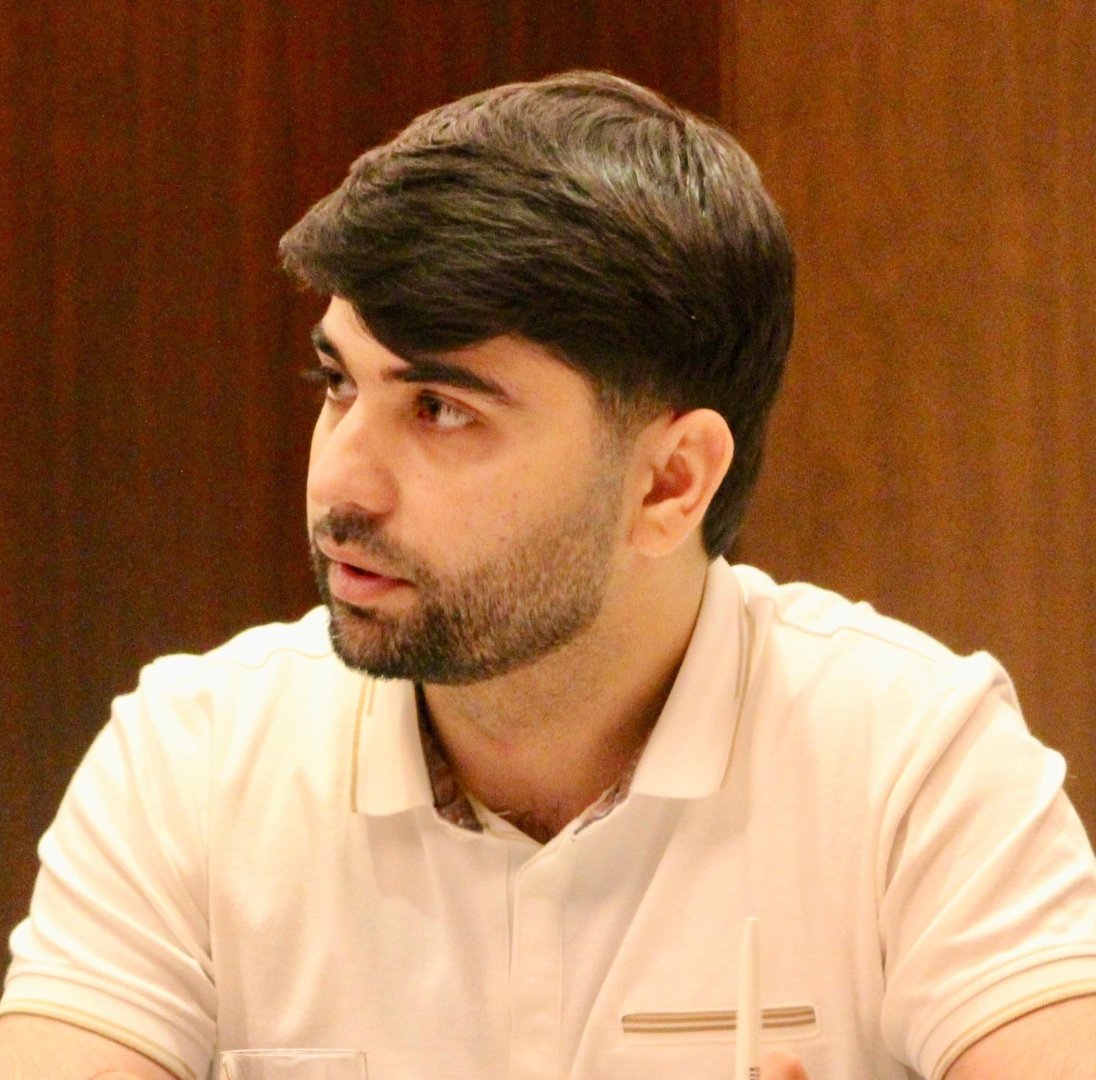BAKU, Azerbaijan, September 13. Romania pledges continued support for Kazakhstan and Azerbaijan in their contributions to the EU's energy security, Ana Cristina Tinca, State Secretary of the Ministry of Foreign Affairs of Romania, said in an exclusive interview with Trend.
Kazakhstan and Azerbaijan as garants of EU energy security
"With a trade volume of around $42 billion in 2023 and an overall investment stock (over the past 20 years) of $180 billion, the European Union is the main economic partner of Kazakhstan. The EU-Kazakhstani Enhanced Partnership and Cooperation Agreement and the EU Global Gateway, backed by consistent, regular political dialogue at the highest levels, have opened new venues of cooperation in transport and logistics, energy, critical raw materials, agriculture, digitalization, and many other fields," she said.
As the state secretary noted, the Southern Caucasus region and Azerbaijan, as a riparian Caspian country, are the most natural bridge connecting the European Union and Kazakhstan and bringing them closer politically and economically.
"Equally important, both Kazakhstan and Azerbaijan are key partners for the European Union in the energy field. Thus, the European Union and Romania in particular (as an EU Member State at the Black Sea) will continue to support all projects aiming to enhance energy security. We are particularly interested in diversifying supply sources and transport routes, promoting sustainable development of new energy sources, and encouraging a balanced transition to green economies. Naturally, increasing the volumes of hydrocarbons shipped via the Caspian and Black Seas, building new infrastructure capacities or expanding existing ones, as well as developing green energy, remain key topics of interest for us," Ana Cristina Tinca said.
As she noted, when it comes to connectivity, Romania believes that policymakers in Kazakhstan, Azerbaijan, and the European Union (including Romania) share the same views about the importance of developing transport and logistics, energy, and digital connectivity.
"Romania is directly involved in key projects such as the regular ferry lines in the Black Sea, the development of the electric cable under the Black Sea (the "Green Electricity Corridor"), the underwater fiber optic cable towards the South Caucasus, and the Black Sea-Caspian Sea Freight Transport Corridor. All these projects also help strengthen the links between Europe and Kazakhstan and the wider Central Asian region," she said.
Trans-Caspian International Transport Route
The state secretary noted that the EBRD Study on Sustainable Transport Connections between Europe and Central Asia presented its first preliminary results at the second EU-Central Asia Economic Forum in May 2023.
"Since then, the Middle Corridor (or the Trans-Caspian International Transport Route) has received unprecedented attention and benefited from renewed, convergent political and practical efforts. The EU Global Gateway Forum, the Investors Forum for EU-Central Asia Transport Connectivity, and the Coordination Platform for the Trans-Caspian Corridors have been the main platforms for exchanges and cooperation on developing the Corridor, including finding sustainable solutions to overcoming existing bottlenecks and boosting transit capacities," she noted.
Ana Cristina Tinca highlighted that transport and logistics, especially considering the importance of the Constanta Port, have always featured prominently in high-level Romanian-Kazakhstani contacts.
"Our presidents and ministers of foreign affairs have recently discussed these topics. Discussions have continued extensively between the line ministries in the first half of 2024, for example during the visit to Romania of the Minister of Transport of Kazakhstan, then at the 17th plenary session of the Intergovernmental Commission on Economic Cooperation, and most recently during the visit to Astana of the State Counsellor of the Prime Minister of Romania – the national senior official in charge of EU Global Gateway," she said.
Green energy between Romania and Kazakhstan
The state secretary emphasized Kazakhstan's unwavering commitment to the shift towards green economies and decarbonization, highlighting its significant value.
"We are fully aware of Kazakhstan's leading positions in terms of fossil fuel output and exports, green energy potential (wind, solar, hydrogen), and rare earth reserves that are critical to shaping the transition towards zero emissions economies. These topics have been high on the bilateral agenda, particularly within the framework of the Romanian-Kazakhstani Intergovernmental Commission for Economic Cooperation, which meets regularly every two years, most recently on February 14th–15th, 2024, in Bucharest. The energy ministers on both sides chair the commission," she said.
According to her, Romania remains a reliable partner for Kazakhstan, including by sharing its experience in green energy market development.
"Currently, Romania bases 40 percent of its domestic consumption on green energy, with green energy production, including renewable sources, accounting for more than 50 percent of the total energy output. For instance, Romania inaugurated the largest photovoltaic park in Southeast Europe in October 2023. Equally important, the transition to green economies requires sustainable, environment-friendly technologies for oil and gas drilling, coal mining, and in petrochemical industries. Romania also has a long and rich manufacturing tradition," she noted.
Trade turnover dynamics
She highlighted that Romania and Kazakhstan share solid, strong ties of partnership, extending more than 32 years.
"Kazakhstan is Romania's most important economic partner in Central Asia; furthermore, Romania is a key gateway for Kazakhstan to the European Union and its Single Market, currently ranking 5th among EU countries and 12th worldwide as a trade and investment partner for Kazakhstan. Despite the significant geopolitical challenges we have faced in recent years, we have continued to build on our long-standing tradition of trustful dialogue at all levels. Last year, President Klaus Iohannis and President Kassym-Jomart Tokayev had substantial discussions on the margins of the UN General Assembly, focusing on concrete steps to boost our trade, connectivity, and energy cooperation," she said.
Following the meeting, Ana Cristina Tinca noted that Kazakhstan's Deputy Prime Minister and Minister of Foreign Affairs, Murat Nurtleu, made his first-ever official visit to Romania.
"2023 set new records of bilateral trade, reaching $3.07 billion (a two-fold increase compared with the pre-pandemic period), with the most significant share going to hydrocarbon imports from Kazakhstan, in particular oil. For the first quarter of 2024, the overall trend remains dynamic, with Romanian imports reaching $740 million and Romanian exports rising by 115 percent to $36 million. However, we have yet to fully tap into the potential. Consequently, the tasks ahead of us could be resumed as follows: diversification - more focus on manufactured products; more input from the new technologies; development of the circular economy," she said.
Potential areas for partnership development
"Bringing our countries and regions closer in all respects remains the strategic guiding line of our relationship. There is impressive potential within the Romanian-Kazakhstani cooperation waiting to be developed by joint efforts, particularly in trade, investments, energy, and connectivity. As far as trade and investments are concerned, we need to move up to a new level and reach the mutually agreed diversification goals, particularly in fields as chemical, pharmaceutical, plastics industries, electronics and electrotechnics industries, electric machinery and materials, agriculture, agricultural machinery and food industry, rolling stock and freight infrastructure, and critical raw materials," the state secretary concluded.







